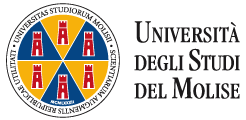Upon your arrival
What Erasmus incoming students need to do right after their arrival
It is strongly recommended that Erasmus incoming students arrive at Università del Molise at least 1 week/10 days before the official beginning dates of the Semesters, in order to get acquainted with the university’s locations and structures. In addition, Erasmus incoming students will need to fulfil some additional procedures as soon as they arrive. Those procedures are summarised hereafter.
Identification
First of all, upon arrival students will have to get in contact with the IRO in order to fulfil the identification procedure. Erasmus incoming students are kindly requested to make an appointment in advance, and to carry with them the same identity document they submitted during the application phase. Using the passport will be the best possible solution for non-EU citizens. The IRO will give indications about the identification procedure according to the main location of the student’s stay (Campobasso, Termoli or Pesche).
Certification of Arrival
According to their home universities’ instructions, Erasmus incoming students may ask the IRO an official certification of their arrival. This document registers the exact date in which the student officially begins her mobility period (by the same token, incoming Erasmus students may ask also an official certification of departure, when their mobility period officially comes to the end), as well as that she has reached her planned destination. Usually, home universities provide their own form to their students, which Università del Molise IRO has to sign and seal.
Registration to the Università del Molise online system
Upon arrival of the students, IRO also proceeds to create for them a personal account in the Università del Molise online system. After the registration, incoming students will receive: 1) a matriculation number (“numero di matricola” in Italian), which will be their official ID at Università del Molise; 2) the official credentials (user name and password) to enter their account using the Student’s Portal (“Portale dello Studente” in Italian). The same credentials will allow students to connect to the WIFI internet connection of the university il all the campus areas; 3) the instructions to activate an additional email account with the domain @studenti.unimol.it, which they are expected to use for official communication with professors and offices. In their account in the Student’s Portal, each incoming student will find the list of the teaching activities she put on their LA, as well as informations about exam dates, number of ECTS, etc. Please note that the exam results which will not be registered in the Student’s Portal will not be registered on the final Transcript of Record. For this reason Erasmus incoming students must check the information inserted in their accounts and ask to the IRO for modifications in case they are wrong. Please note also that the main function of the Student’s Portal account is to allow students to book the exam dates for the teaching activities they followed (see the page Examination system for more information in that regard). The additional email account @studenti.unimol.it will be also needed to take part in the online teaching activities using the Microsoft Team platform. With very few exceptions, incoming students will not have to register in advance to a single class to join it. They need only to reach the classroom, and make sure their attendance rate will be as high as possible. Some teaching activities, indeed, may require a minimum amount of hours of frequency to be admitted to the final exam. Class schedules are provided directly by the administrative offices of each Department/Degree course, and are published on the Università del Molise website right before the Semester begins. The IRO will put each incoming student to access the relevant information, but it will be the incoming student’s responsibility to ask for clarifications, where needed, directly to: the administrative offices of each Department/Degree course, the professors holding the class or, alternatively, their host Erasmus coordinator.
